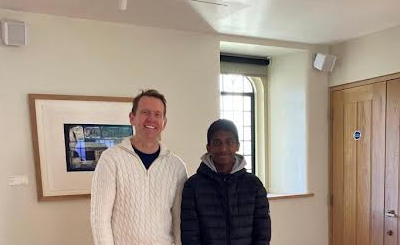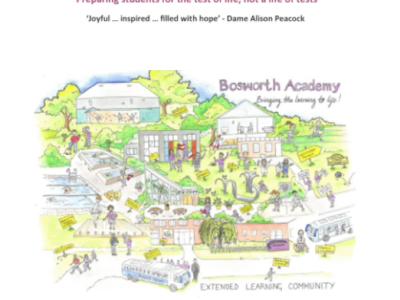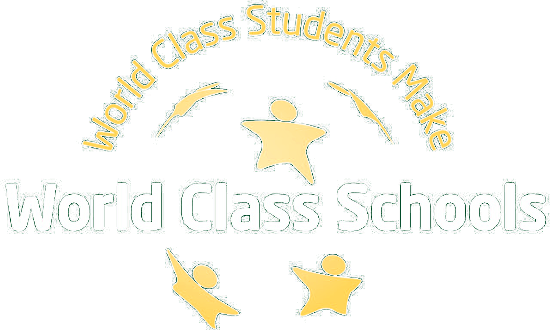Challenging Times

We know these are challenging times and we know our students have been duly challenged by them. This is beyond doubt. However, we are uncertain as to what the effect on our students has really been, what it means for their future and what we should do about it.
It seems to me that in order to serve our students best, we should recognise the pandemic for what it is, an unprecedented opportunity to re-focus on learning, capitalise on the rich information it can give us about how young people learn best and put what we find out into practice.
COVID has given us the chance to see what works best in learning during the most challenging of circumstances. If we can understand this, we can support our students to learn well, life-long, regardless of the circumstances. This is the best thing we can do for them.
Lessons learned during the pandemic
The pandemic has pared back learning for us. We have delivered learning in its most reduced form, without face to face interaction, without inspiring environments, without the physical presence of trained professionals. We have in effect had to put our students through the most drastic of experiments which has made them all, at some times, on some level, disadvantaged.
This universalisation of disadvantage has been a leveller. It has also impacted on our unconscious biases, and enabled us to see learners without our possible prejudices. Students have surprised us. Students who struggle at school thrived at home learning. Students who dislike school have returned relishing it.
This paring back of learning has focused us on the learner. It is how effective our students have been as learners that has determined their success or otherwise during lock down. This re-focus is welcome. For example, Ofsted currently see learning in terms of curriculum delivery, and student character as something completely separate. Better to investigate what the pandemic shows us about the characteristics of an effective learner, and develop strategies to imbue this effectiveness, rather than be preoccupied with what it is that we, the teachers do to them, the students. It should be, after all, our overriding objective to nurture students who can walk away from us with the ability always to learn well from life, without our support.
Preparing our students for a lifetime of challenges
We know that COVID will not be the last such challenge that our students will face. Life is challenging. Effective life-long learners, who learn well regardless of the circumstances, are not necessarily those who have a sophisticated knowledge of the first World War’s causes. They might not know the periodic table off by heart. These learners will be however, individuals with certain characteristics that predispose them to learn well.
As educators, we already know that, on return to school, the students who have fared best, and lost learning least have certain dispositions. Given the recent nature of the pandemic, robust peer reviewed research evidencing this is lacking. However, if we look to situations that have disrupted young people’s learning in a similar way, such as natural disasters and wars, the evidence is there. For example, evidence from the re-structure of education after Hurricane Katrina* shows that it was the students’ characteristics that determined how well they developed as learners, through and after the event. Similarly, learning successfully in war zones** is evidenced as being about the students’ character as a learner, not, for example, about how the curriculum is delivered or its content.
A focus on character development
Character is about agency, independence and the power to act. “Agency involves the initiative or self-regulation of the learner.”*** Agency means that the focus is on the learner not the teacher. It is the cultivation of agency, according to the OECD, that is education’s future, because “Agency implies a sense of responsibility to participate in the world and, in so doing, to influence people, events and circumstances for the better….”**** To future-proof our learners, we must ensure they have the ability to be the change, and not experience it passively.
At World Class Schools Quality Mark (WCSQM) we have drawn up frameworks of characteristics we think are most valuable for young people to succeed as life-long learners in an ever-changing global economy. We acknowledge that no framework can be all encompassing, but ours present a broad palette. There is, of course, substantial evidence that certain characteristics are better than others for effective learning; rather a hard-working student than a lazy one. However, it is the focus on character itself that is non-negotiable for us at WCSQM, rather than specific characteristics.
We acknowledge that characteristics required to become an effective learner can vary from student to student, as do the ways a student exercises agency. In the past, this has led to an impasse over the structured assessment of ‘soft skills’ in schools. At WCSQM we have overcome this. Students identify what characteristics they need to develop as effective learners, against our frameworks, in their own terms, according to their own specific circumstances. Our processes assess students in ‘real time,’ as agents of ‘real life’ experiences.
So, I view the pandemic as a magnifying lens through which to see a focus on character as the pre-requisite for developing effective learners. Crisis promotes hope and positivity. We have a shared hope that we will get out of this pandemic and a shared commitment to improvement on the current situation. ‘It can only get better.’ No one wants the status quo. I want to ride on the wave of this consensus on improvement, and I am obviously hoping you will consent that my proposal for a focus on developing students’ characteristics is the right one.
References
*What Post-Katrina New Orleans Can Teach Schools About Addressing COVID Learning Losses https://www.crpe.org/thelens/what-post-katrina-new-orleans-can-teach-schools-about-addressing-covid-learning-losses
**Crisis Schooling: Studying in Yemen’s War Zone https://www.ool.co.uk/blog/crisis-schooling-studying-in-yemens-war zone/#:~:text=In%20Yemen’s%20horrifying%20civil%20war,displaced%20people%20or%20the%20military.
*** Ten Trends 2014 https://core-ed.org/research-and-innovation/ten-trends/2014/learner-agency/
**** Organisation for Economic Co-operation and Development (OECD) Future of Education and Skills 2030 https://www.oecd.org/education/2030-project/teaching-and-learning/learning/skills/in_brief_Skills.pdf





